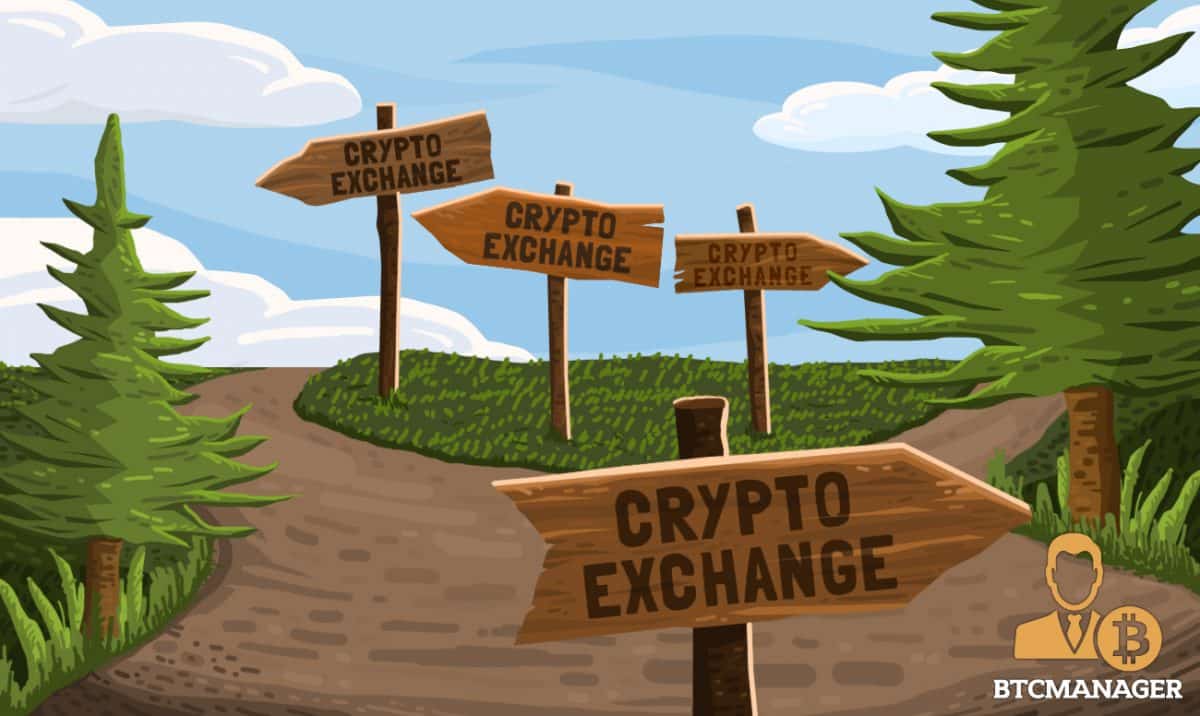Battle of the Institutional-Grade Bitcoin Exchanges: All You Need to Know

Much of the cryptocurrency industry remains shouldered on the pillars of crypto-exchanges. This support comes mostly out of convenience; banks and financial bodies seek exchanges with a good track record, liquidity, and easy fiat-to-crypto process.
All Eyes on Crypto
With institutional interest and government regulation at an all-time high, 2018 represents a marquee year for cryptocurrencies. Several news reports and statements prove that Wall Street and its counterparts are indeed looking into cryptocurrency trading, investing, and even the implementation of a company-specific blockchain.
But as an institutional investor, the exchange checklist is vastly different than for an average person. While the latter may have scouted the number of altcoins on offer and the ease-of-access of the exchange, an institutional investor will give a higher premium to items like security, liquidity, development team, and fee rebates.
This distinction is understandable, as the difference in account sizes between the two groups could very well be $100 million.
In this article, Crypto.news explores three brands in particular who are aiming at institutional investors: GDAX, GBX, and Gemini.
Gemini Exchange: Pros and Cons
Founded by the Winklevoss Brothers in 2015, Gemini bears the title as the world’s first U.S Government licensed crypto-exchange; displaying a clear intention of being distinguished from its peers at the time. Specifically, the exchange adheres to banking compliance standards as applicable by the NYSDFS and the New York Banking Law.
Gemini employs a team of 55 people, who necessarily have a minimum experience of three years in their respective sectors.
The exchange has also already been endorsed by institutional players, such as crypto hedge fund BlockTower and CBOE for the daily settlement of Bitcoin futures. Gemini also provides different accounts for institutional investors which include features like high deposit limits and advanced crypto-wallets.
For banking, Gemini’s customers have their USD funds stored in a secure FDIC-insured bank located in the United States, meaning the accounts are insured up to $250,000 in case of an unfortunate hack.
Furthermore, account holders have unique accounts which aren’t under Gemini’s name, thus protecting investor funds in the event of exchange bankruptcy. Customers also enjoy instant bank transfers, with funds immediately available for trading once the transfer is made. But, as mentioned earlier, there is always a flipside to these advantages and Gemini is no exception.
Perhaps the most significant con, and this reflects in all three exchanges mentioned in this article, is the centralized nature of Gemini.
Trusted third parties are security holeshttps://t.co/8ISbK4Kdvp https://t.co/mAfYNAtajL
— Nick Szabo (@NickSzabo4) December 20, 2017
Although the exchange holds investor tokens in cold-wallets, it is recommended that all cryptocurrencies are kept in personal hardware wallets, and not trusted with a third party.
It must be noted that the exchange ensures only USD accounts, meaning the $250,000 insurance is good as long as it was stored in dollars in the company’s wallet. This insurance amount does not cover loss of BTC and ETH.
Bank deposits are limited to $10,000 per day for institutional investors. This constraint may also be a concern for an investor willing to invest $10 million, as the trading account will take a whole year to be trading-ready.
In what can be a drawback for investors seeking aggressive returns, Gemini currently offers only BTC and ETH, that may not give altcoin-like returns.
Regarding security, no independent auditor audits Gemini’s trade platform. Despite having an NYDFS cybersecurity regulation, it is a bonus if third-party audits are considered.
According to Glassdoor, a platform that lets employees review their company, the company has a paltry 2.7 rating, with several employees expressing dissatisfaction with the work environment. Finally, Gemini does not offer services to Europe, Japan, Australia, Russia, and China, all of which are crowded markets of wealthy investors.
Global Digital Asset Exchange (GDAX): Pros and Cons
A wholly-owned business by Silicon Valley-funded Coinbase, GDAX was launched in 2016 and is among the highest volume exchanges in the world, according to collected data from Coinmarketcap.
The parent company of GDAX, Coinbase Inc., currently handles $9 billion worth of digital assets across all its platforms, thus making it the world’s top cryptocurrency business. A total of 200 experienced employees work at their offices in London, New York, and San Francisco.
Recently, the company announced a partnership with Trading Technologies (TT), a world leader in providing trading software. Moreover, TT customers can now use GDAX for trading cryptocurrencies and bitcoin futures.
Similar to Gemini, all USD fiat deposits are held in FDIC-insured accounts in U.S banks. Fiat in Euro and GBP are kept in separate accounts as well, without insurance, but are protected in case of exchange bankruptcy.
The fee per trade is 0.25 percent, which is also enticing for institutional investors. But that’s where the buck, or crypto, stops.
The company has a centralized trading platform, which is a cause of concern for institutional investors. Furthermore, only two percent of investor funds are held by the exchange, with the remaining in cold wallets. Hence, just this amount is subject to insurance in case of a hack or employee theft.
GDAX is infamous for its slow deposits, poor customer support, and week-long waiting periods for fund withdrawals. The exchange is the subject of many-a-post on Reddit, where users frequently voice their dissatisfaction over the exchange’s poor service.
The firm does not conduct any independent security audits of their trading platform, and the choice of coins available remains limited: GDAX offers only Bitcoin, Ethereum, Bitcoin Cash and Litecoin for trading.
Gibraltar Blockchain Exchange (GBX): Pros and Cons
Perhaps the only exchange with a direct government connection, the GBX is a subsidiary of the Gibraltar Stock Exchange and works towards becoming compliant with the specifications of institutional investors. The exchange aims to become the platform of choice for ICOs – an added advantage for aggressive and high-risk institutional traders.
Backed by the country’s official stock exchange, the GSX certainly carries more reputation than its competitors. Its mandatory for all traders to complete AML/KYC checks, and the exchange offers multi-signature wallets to all users.
In contrast to other institutional exchanges mentioned, the GBX offers the Rock Token (RKT), the exchange’s native toke, that allows the trader to pay lower trading fees if they trade with it.
It has also been reported that later in 2018, the exchange will launch the GSX Tokenized Securities Exchange, an independent subsidiary that will list security tokens exclusively. These tokens, it must be noted, are different to utility tokens and are backed by a real-world asset, such as oil.
As with GDAX and Gemini, GBX stores a fraction of coin holding on the exchange, with the rest in company cold wallets. GBX also conducts no independent security audits of its platform, which could give a lack of transparency to institutional investors.
The exchange GBX excludes some of the most prominent crypto markets worldwide, such as USA, South Korea, and Japan. Plus, 65 percent of GBX’s native RKT is held by the GBX team, making it less appealing for fundamental investors.
Lastly, the company GBX borderline misleads investors via its compliance claims. Although the company is a division of the GSX, it does not have any traditional finance regulatory certificate and only holds a distributed ledger regulation (DLT); a mandate for every blockchain business in Gibraltar.













